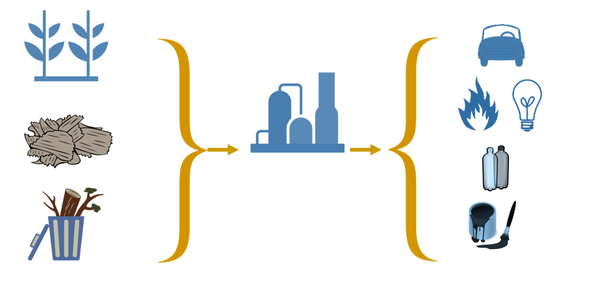
Sustainable Bioeconomy
As many governments across the world advance towards low-carbon economies, balancing their energy, water and food demands becomes more critical. Bio-based products can diversify nation’s economy and increase economic gains of rural areas by providing additional uses of agricultural and forestry wastes. Nevertheless, selecting sustainable production pathways of bio-based products that support water and food security, do not incur short- and long-term damages to environment and are cost-effective has been a difficult task.
Sustainability Assessment of Bio-based Products
Bio-based materials are increasingly considered as viable substitutes for petroleum-based products. Bio-based materials are sourced from renewable sources (biomass), have lower global warming impacts compared to conventional products, and improve energy security and the value of local agricultural products.
To create the possibility of wide adoption of these products by consumers, these products have to:
- provide a better environmental performance compared to conventional products
- be competitive with alternatives in the market.
A comprehensive life cycle cost and environmental impact study of these bio-based products provides decision making information for policy making and commercializing these technologies.
The goal of this research group is to evaluate environmental impacts and cost of emerging bio-based material production scenarios from agricultural and forest products and wastes in order to select optimally designed systems that can achieve a net positive and in-balance impact on the environment, economy and society.
This Web page represents the views of the author and not necessarily those of North Dakota State University.
NDSU is not responsible or liable for its contents.
